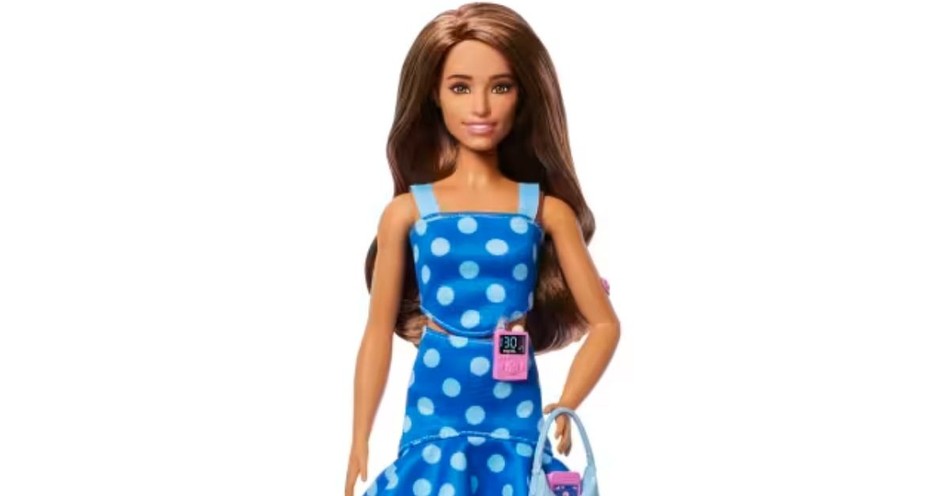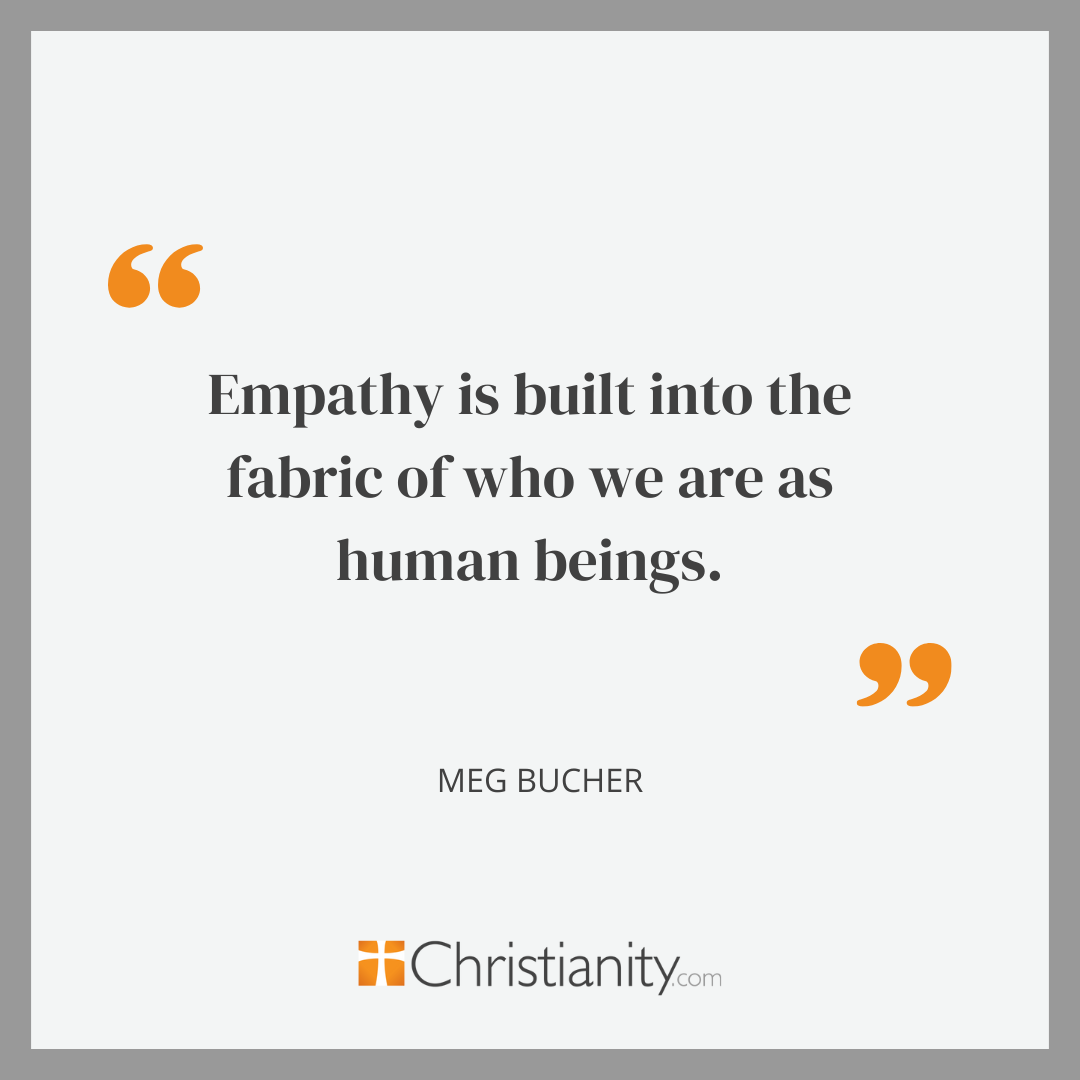A new Type 1 Diabetes Barbie reminds us that we are seen, known, and loved for who we are.
How Mattel's Type 1 Diabetes Barbie Teaches Us about Empathy

Mattel recently launched a Type 1 Diabetes Barbie in their ongoing effort to broaden the scope of inclusion. As the parent of a Type 1 Diabetic, tears snuck up on me as I scrolled onto the social media announcement. There is something so incredibly important about being seen. I have witnessed the everyday fight my daughter wages in the background. Truly, we don't have the full capacity to empathize with someone's struggle when it's not part of our daily reality. It's not cruelty on purpose, but it definitely feels isolating.
Type 1 Diabetes is an autoimmune disease, where the body stops making insulin on its own. As my daughter says, "My pancreas quit on me." It's the organ responsible for producing insulin, which aids in a lot of things. It's an invisible disease, unless you understand what to look for. Thank you, Barbie, for extending the education that JDRF has already so faithfully paved the groundwork for. It doesn't stop my daughter - she scuba dives, dances, cheerleads, lives a full life - she's out for a run right now as I write this- but it takes a ton of work, and a lot of determination. In our house, we are grateful that God carries us through the days that are just too hard, too long, and too unfair.
Why Is Type 1 Diabetes Barbie Important?
Type 1 Diabetes Barbie is important because it helps us to identify and foster a community. Is there a more horrible feeling than isolation or feeling defective? Seeing disability and imperfection pointed out in an empathetic and inclusive way is an important model of love and kindness in a world that is desperate and darkening. To me, it's light shining in the darkness, evidenced in the movement of my heart as I scrolled past the announcement. It met me where I was at. It especially met my daughter where she was at. Call me crazy about Jesus, because I am, but all of these points relate directly to his example and who he is.
My favorite thing about Jesus is the people he picked to hang out with. In an ancient society in which imperfections meant more than just being flawed, Jesus made an effort to make sure they knew he saw them. Disability was often considered a punishment from God, a curse for having done something wrong, or the result of generational suffering from something a relative had done wrong. Jesus came to help us understand the flawed nature of a sinful world, and that the flaw doesn't define the person. Whether physical malady, mental struggle, or quarantinable disease, Jesus' love permeated the air equally.
Jesus came to make sure the door not only cracked, but flung wide open, for all of us, to come to God through him. Forgiveness, freedom, healing ...all things freely available when we know who he is and choose to believe in and follow him. Each time we recognize someone who fights a battle we don't understand, we get the chance to learn, help, support, and grow as human beings...and for Christ followers ...as people walking towards heaven.
Why Is Empathy Important?
Empathy is built into the fabric of who we are as human beings. Some of us tap into it more naturally and prevalently than others, but we all have an inborn sensitivity that, when we pay attention to it, will alert us and allow us to operate as the hands and feet of Jesus here on earth. Even for those who don't believe in Jesus, it's hard to deny the natural tendency to crave kindness, grace, forgiveness, and love. We know, psychologically and neurologically, how important those things are to our human psyche. To love and be loved is an essential human quality. Empathy is inclusive by nature because it communicates the message, "I see you." We don't have to understand everything everyone is going through, though I do believe we are put in each other's lives purposefully so that we can help each other in that way. But just being seen is often enough to keep even the most hopeless person alive.
In our quest to be right, we miss out on walking into the pages of another's story. Empathy isn't about having all of the answers. We have counselors, doctors, and other professionals gifted, educated, and qualified to provide that kind of care and treatment. But we all have empathy. We can all choose to stop and see people. Especially the ones who are placed directly in our paths. God is not a God of coincidence, and even if you don't believe in God, why pass up an opportunity to pay kindness forward? Isn't that the flag our modern era waves around? Barbie is giving kids the opportunity to grow up in a world that allows them to foster empathy early on. Instead of "What's that stuck to her arm?" a friend may be ready with a juice box when a low blood sugar alarm goes off at the lunch table. Knowledge is an important element of empathy.
There are many causes to support for so many different human struggles. Type 1 Diabetes is one of them. If you know someone with Type 1, support them. Walk with them. Donate to the research being done to cure their disease. Listen to them. Ask them what it's like. Any chance we have to peek into another person's life is a gift to us, too.

A Healthy Identity Includes the Whole Person
I watched my oldest daughter change before my eyes the day she was diagnosed with Type 1 Diabetes. Yes, there are far more grave diagnoses, but nevertheless, this is a life-changing one. In an instant, my then 13-year-old had to change the way she lived, making adjustments, pricking her fingers, injecting insulin several times a day, and adding a giant learning curve to every new task ...and old one. It's more Math to eat food than I personally care to do. Fingers that have lots of holes in them. Extra efforts to exercise, special accommodations at school, and the constant reality of being misunderstood ...and quite frankly, unnoticed. The cyclone of this new reality swept up her identity and forced her to recalibrate. There was no denying the change, but she tried. When modern technology arrived and was insurance-approved, the celebration was joined by stickers that came with chemical burns, scars, malfunction, and alarms. There are far worse diagnoses, but it's extremely difficult to live with Type 1 Diabetes, and this is their moment of recognition.
Many people see Type 1 Diabetics and may even know them, but do we see the whole person? For example, did you know ...
-Type 1 Diabetics can eat whatever they want. (So please, stop asking them "Can you eat that?")
-Type 1 Diabetics count carbs, and depending on how many carbs they are eating, take an exact dose of insulin.
-When a Type 1 Diabetic is low, they need a fast-acting carbohydrate (for example, juice that isn't sugar-free)
-When a Type 1 Diabetic is high, they need to drink water, move around, and test for ketones (which are signs their body is attacking itself).
-Type 1 Diabetics get alarm fatigue, from being alerted to low and high blood sugar every day, all day.
-Type 1 Diabetes is a genetic, auto-immune disease. It's not from being overweight or unhealthy (that's Type 2 ...a completely different disease).
-Type 1 Diabetics must work hard to exercise, consuming high carbohydrates and protein to stabilize their blood sugar, with naturally occurring dips during physical activity.
-When a Type 1 Diabetic is high or low, it affects their cognitive ability, and they cannot think straight and may act out of character until their body recovers and their blood sugar stabilizes.
This is just a very small snippet of what a Type 1 Diabetic catalogs each day.
How Type 1 Diabetes Barbie Illustrates Godly Love
It's just a Barbie, but it's not. In our world, my daughters and I can tell daily the direct ways Jesus makes known that he sees us. If it breaks our hearts, it shatters God's. He is a good Father, and there are so many answers to healing we don't have this side of heaven. So many questions about suffering that puzzle us. Lots of unfair things that befall fantastic ...and innocent ...people. But what I do know is that Jesus does see my Type 1 Diabetic, and that her struggle is not unnoticed by an almighty God who goes before her and protects her. The day of her diagnosis, a bald eagle flew past the back sliding door of our home. It wasn't uncommon to see eagles, as we live on a shoreline where they are quite prevalent, but never that close or in that particular spot. Later on that day, as we sat in the pediatrician's office digesting our next steps, my daughter and I met eyes with tears, but we knew we weren't alone. Though her faith floundered in the years that followed, the basic support structure carried her through. Our faith is not nearly as fragile as our bodies if we lean into it when things get hard.
I have watched my daughter go through something so hard. As a parent, not being able to take the pain away is emotionally devastating. And parents, I see you, too. The everyday, all-day work of raising a Type 1 Diabetic. Our journey started at 13, many start as babies or toddlers. I've seen the cruelty firsthand, from adults and kids alike. The stigma that comes with any diagnosis. It feels really unfair, and very lonely sometimes. As a parent, we feel we have to constantly do damage control, but in cryptic reverse, explaining all of the things all of the time. I know, it's just a Barbie ...but it's important. She's become a litmus test for pop culture, and pop culture has the power to reverse stigma and model inclusiveness. In a world where none of us gets it right all of the time, we do get things exactly right, some of the time. God promises to work all things for good, even Barbie dolls, and especially pop culture. The more we know Jesus, the more we see him in everything, every day, all of the time. Doesn't make it easier, but it definitely makes it more endurable.
The tears, the exhaustion, the unfairness, and the worry ...the overwhelm ...it all comes alongside a pivot of hope. Today, Type 1 Diabetes is closer to being cured than ever before. The insulin pump Barbie will wear, and the wireless one stuck to my daughter at all times, communicating with other continuous glucose monitor - also stuck to her at all times - are miracles on earth. Huge steps forward in healing and giant symbols of hope. The stickers that decorate Type 1 Diabetics are badges of courage, and underneath them are the scars of warriors, battling each day to stay alive.
A Prayer for Type 1 Diabetics
Father,
For anyone with Type 1 Diabetes who feels unseen, overwhelmed, and unwell today, please give them an extra bolus of your love and comfort. Help them realize they are seen, heard, and cared for by you, the Creator of the Universe ...and them. Thank you for the medical advances that are making life easier for Type 1 Diabetics. We pray for a total and complete cure of this disease, God. But if not, or until then, we trust you. We love you, and we ask you to be our strength on days that are just too hard to wrap our minds around, and which zap our physical strength.
In Jesus' Name,
Amen.
Photo Credit: © Mattel/PA




